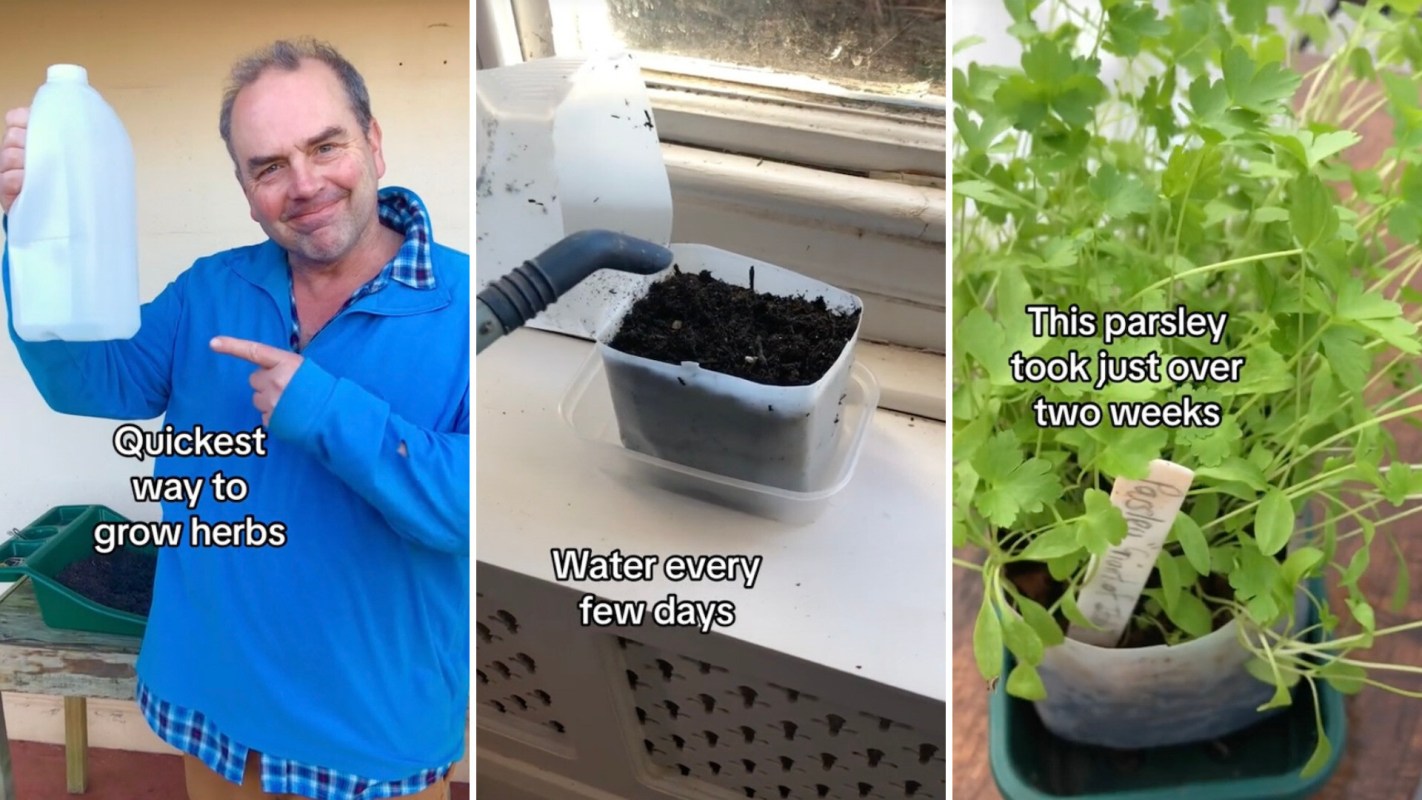A home gardener showed a quick hack for growing tons of fresh herbs by recycling a used milk container.
"In a rush to grow herbs?" Simon Akeroyd (@simonakeroydgardener) wrote in the caption. "Growing herbs in recycled milk cartons is the quickest method of growing herbs. The cartons act like mini greenhouses."
@simonakeroydgardener In a rush to grow herbs? Growing herbs in #recycled milk cartons is the quickest method of growing herbs. The cartons act like mini greenhouses. I've grown parsley, basil, corriander and Russian taragon this week. Remember to make drainage holes in the bottom. #reuse #miniherbgarden #herbgarden #growyourown ♬ Flowers - Miley Cyrus
The scoop
Simon demonstrated how to make these miniature jug-greenhouses. He poked several holes in the bottom and made a cut on three sides, about halfway up the jug. Then, he filled the bottom half with compost, sprinkled seeds on top, closed the jug, and put it in a sunny windowsill.
"Water every few days," he added, showing an abundance of parsley that he said grew in a little over two weeks.
"Holy Toledo, that is freaking amazing!" one person wrote.
"Enjoy your fast-growing herbs," Simon concluded with a smile.
How it's helping
Considering that a single package of fresh herbs can cost upward of $5 at the grocery store, it pays to grow your own herbs at home for free. In fact, growing your own food can save you more than $600 per year. And in this case, it couldn't be easier.
Better yet, it's a virtuous cycle: Growing one plant makes it easy to propagate and create your own unlimited supply of everything from parsley to basil, garlic, and even strawberries. And the larger your garden grows, the more organic matter you'll be able to turn into compost, which can nurture your future seedlings.
If you're somebody who tends to feel guilty about tossing plastic, this method has the added benefit of keeping those milk containers out of landfills. As the United Nations Environmental Programme phrases it, Earth is "choking" on plastic. The Organisation for Economic Co-operation and Development noted plastic production is set to triple by 2060.
The excessive amount of plastic in our landfills and oceans has leached dangerous toxins into our air, water, and soil, leading to a plastic-related death every 30 seconds, according to No Time to Waste.
Given that, working to recycle plastic whenever you can is critical. You can also make upcycled seed pots from other daily goods, including toilet paper rolls and brown paper bags. And as a bonus: Plants absorb harmful air pollution, so not only are you preventing plastic waste, you're also helping clean the air…one herb at a time.
What everyone's saying
Commenters were eager to test the method themselves.
"Can't say it enough, you're a genius," one person wrote.
"Oh, I need to try this!" another person said. "… My chickens love fresh herbs but eat them so fast."
One returning gardener had tried one of Simon's other hacks for growing avocados using pits from the store.
"Now I have 3 small trees growing," they reported.
Feeling inspired yet? Check out our guide to growing your own food for more tips.
Join our free newsletter for easy tips to save more, waste less, and help yourself while helping the planet.









